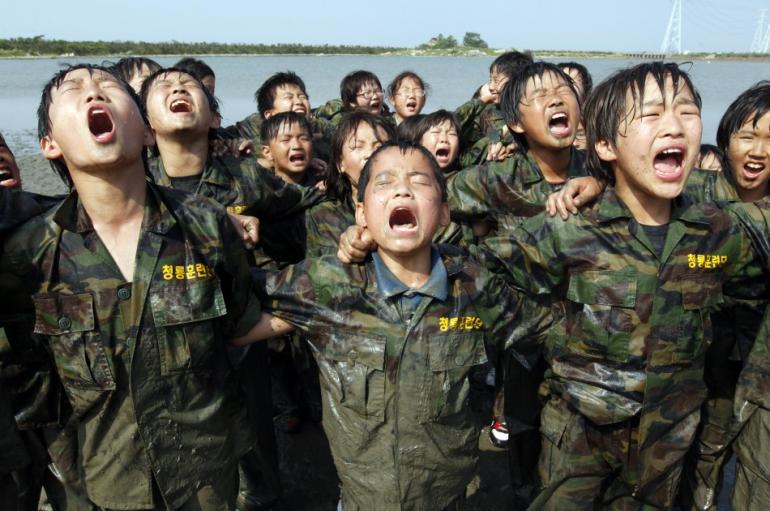
“Say What?” 10 Things You’ll Hear in the Classroom
Now keep in mind, your role as a foreign teacher is to teach the kids English… in English. You could learn some classroom language such “repeat after me” or “raise your hand”, but your students will soon enough pick up the meaning when given the instructions in English. As a native English speaker, it’s not your role to speak Korean in the classroom, but it sure is useful to understand some.
So here are my top ten useful phrases for teaching kids:
1. 나는 쉬 필요 – Naneun shee pilyo

Or more likely just “shee shee” in a panicked voice. This will come from your kindergarten kids or possibly even your 1st and 2nd graders. It means, “I need to go to the toilet”. No, scratch that, or you might try use the phrase yourself when looking for a restroom in a restaurant, and I want to save you the embarrassment. It means, “I need to pee”.
- 내거야 – Naegeo-ya
This is the phrase you’ll hear when two young learners are fighting over an object. It means, “Mine!” If you work at a kindergarten, you’ll hear this a lot.
- Kid A: 미안 해요 – Meean-haeyo Kid B: 괜찮아요 – Kwaenchanna-yo
If two kids have been fighting and you hear this, you don’t need to get involved as they have already resolved their issue. You guessed it, these phrases mean “I’m sorry” and “That’s ok”.
- 몰라 – Moola
“I don’t know”. The kid doesn’t know the answer. Ask the next kid.
- 잠시만요 – Jamsheeman-yo
“Hold on”. This kid knows the answer, they’re just looking into the recesses of their mind… or the page in the book you did yesterday. Give them a minute to answer. Or you may hear it when a student realises he closed the snail he found at break time in his book and wants you to “hold on!” before starting the game, so that he can take his book out again and check if the snail survived. It hasn’t. It’s squashed. You can start the game.
- 했다/했어요 – Haett-da/Haesseo-yo
This can either mean “I’ve done it” as in “I’ve finished completing the task” or “We did it already” as in “Teacher, you’re an idiot, that was yesterday’s lesson” ;)
- 없어요 – Obseo-yo
This directly translates to “it isn’t” or “to not have”. You’ll hear it after another phrase, such as “Yeonpil obseo-yo” or “Cheak obseo-yo”. In other words, the kid forgot her pencil or book.
- 않보아 – Ahnbo-ya

You’ll most often hear this from the kids at the back of the class, usually when you’re writing on the board, or showing something on the TV. You guessed it… it means, “I can’t see!”
- 끝! – Geudt!
Now if you have a terrible ear for Korean, as I did my first few years, this may sound like an enthusiastic “Good!” and you may mistakenly think your students think the lesson was great. I’m sorry to tell you that the students are simply telling you time is up: “Geudt” means “finished”.
- 재미 없어 – Jaemee-obseo

I’ve saved the “worst” for last. The one I hope you don’t hear. I’ve decided not to add the “yo” here, as if you hear this one, your students are not being very polite. And they’re not having a good time. They’re bored. I’ll give you a hint: “Jaemee” means “fun”. (Check number 7 if you still haven’t figured it out). So rather, I hope you hear, “Jaemee-isseo-yo!”
So there you have my top ten phrases all teachers of young Korean learners should know, to make your day-to-day classroom life a little easier to navigate.
Pic sources:
http://s3-ec.buzzfed.com/static/2014-07/15/18/enhanced/webdr04/anigif_enhanced-13514-1405462084-22.gif
http://www.theprospect.net/wp-content/uploads/2014/02/back-of-class.gif
know/http://book.interpark.com/blog/postArticleView.rdo?&blogName=ddongae9&postNo=2305424

